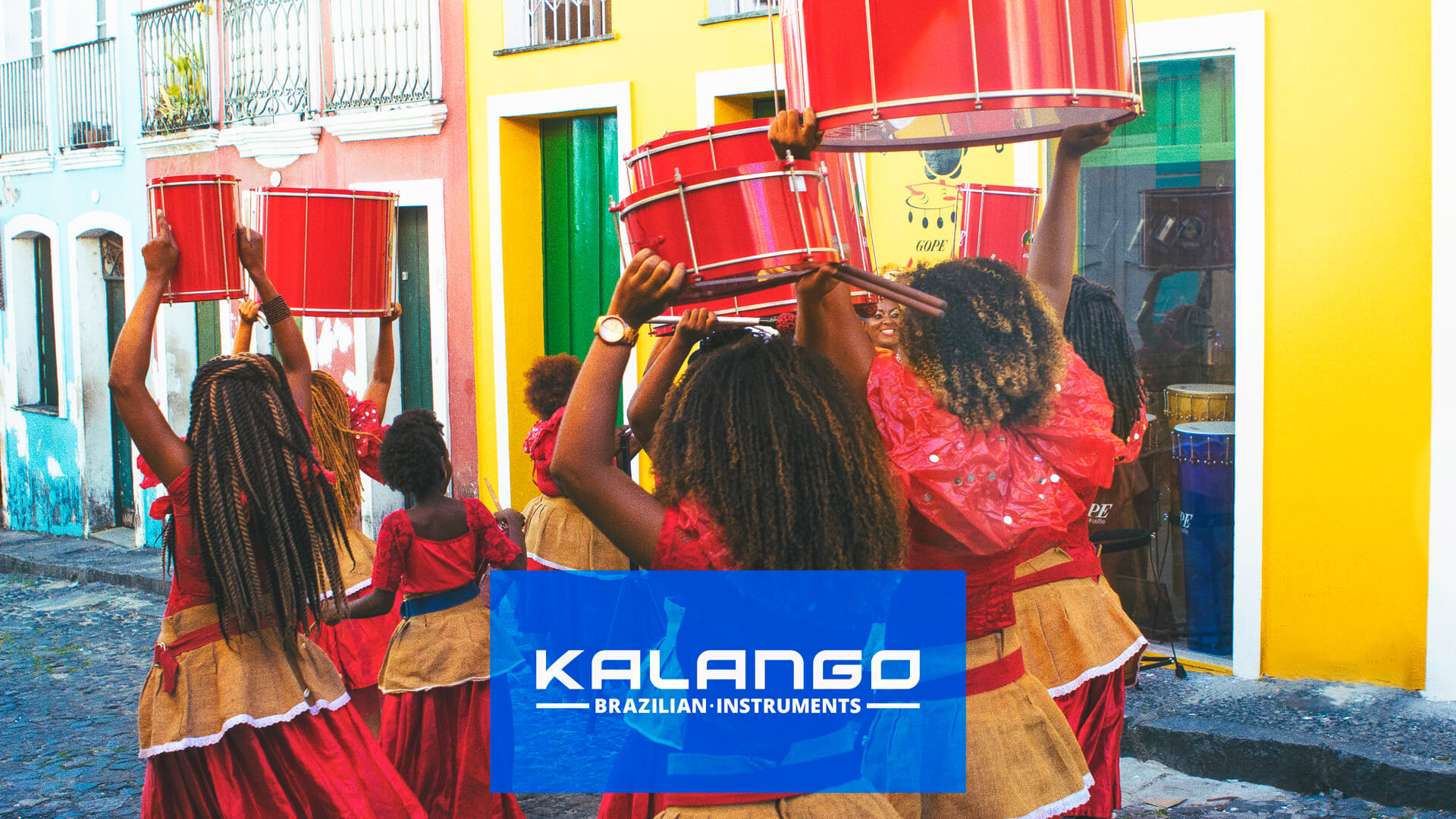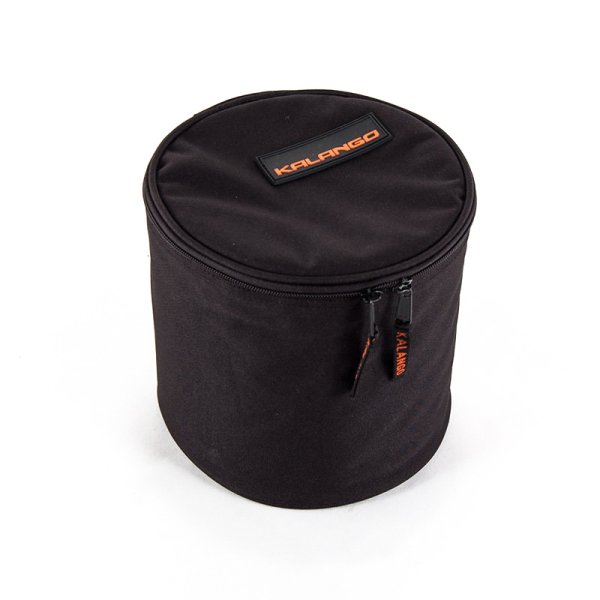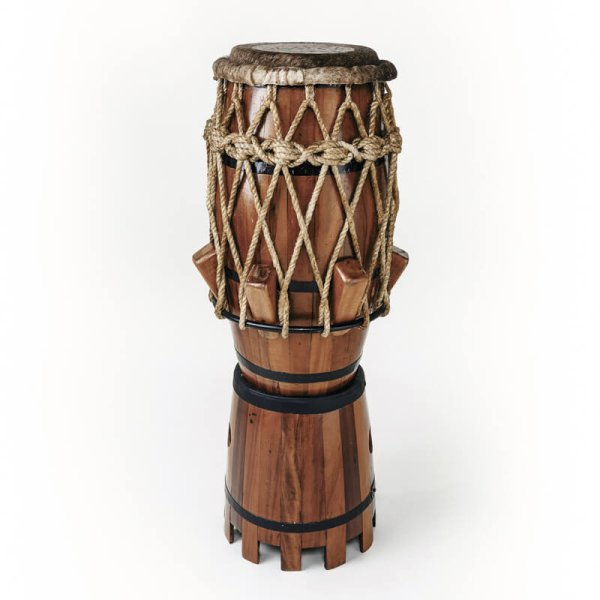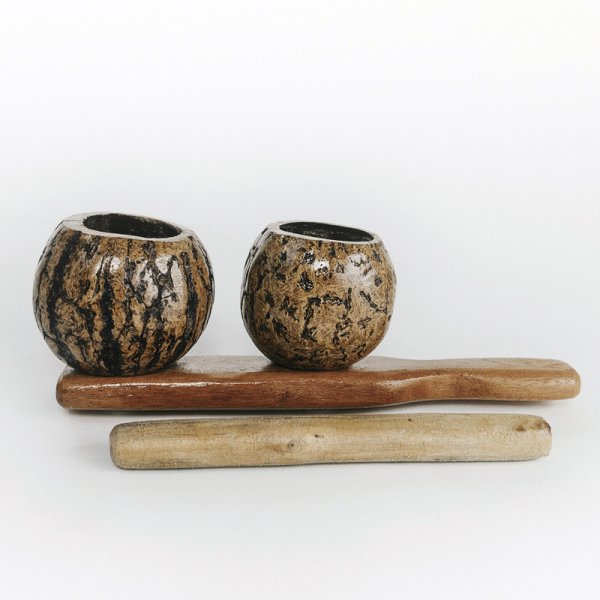CAPOEIRA - MORE THAN JUST A SPORT
Mestre Cigano talks with a soft voice and almost loving words about his passion, Capoeira. When it all started for him, the scene in Germany was still hardly existing. There was basically still no internet and only a modest number of Brazilian Capoeira professionals were around. At that time, 18 years young, Cigano experienced his first contact with Capoeira. He had seen it at a festival of martial arts and immediately fell for it. He had to learn it! Bit by bit he started to make new contacts with the very few capoeiristas in Germany, the first 6 years he literally spent looking for ways of approach through kindred spirits and other forms of access. There were hardly any authentic lessons from Brazilian capoeiristas as they needed a visa for European countries which was not easy to obtain. As soon as they tried to stay longer in order to be able to offer more extensive courses , things would get very difficult. Other than today, it was unimaginable to invite qualified teachers for workshops and courses over from Brazil as quick and fearly easy as it is today.
The day came when he met Mestre Paulao, one of the founders of the Grupo Capoeira Brasil (GCB) - a Brazilian association which modified the ancient Capoeira movement, developed a new framework and, for the first time, created structures suitable for Capoeira on an international level. Mestre Cigano decided to travel to Brazil for 7 months - an important landmark in his life and the beginning of his extraordinary Capoeira history (soon to come: read the whole story in his book 'Capoeira Guide', english version available aprox. 2017). On his return, the idea was born to start something similar to the Grupo Capoeira Brasil in Germany. The idea was to create an association in several cities, to train capoeiristas professionally and to foster the art and culture of this beautiful tradition.
MOVEMENT, MUSIC, LANGUAGE, FRIENDSHIP - CAPOEIRA'S GOT IT ALL
What is Grupo Capoeira Brasil?
In 1989 the Brazilian association was founded by the Mestres Paulao, Paulinho and Boneco. Brazil then was passing through difficult times of transition, the dictatorship had just ended, democracy was to-the-minute, racism the sad truth of daily life. The unrest of the past years had left its traces and had also affected Capoeira. Brazil was violent; criminal activities, brawls, physical power struggles between gangs and even death victims weren't nothing so rare. At the end of the 80s, a critical climax was reached. In Capoeira this meant: the old mestres from Bahia were ridiculed or forgotten, the younger generation was agitated, bursting with energy and aggresive. Values such as respecting the weak and the old had degenerated completely and escalated the situation. A few remembered the pleasure and beauty of this sport and retrieved the ancient mestres. With the Grupo Capoeira Brasil a unique movement was built, the rennaissance of Capoeira was initiated. Friendship, nice atmosphere and good energy were revived and put to the center of attention. Since then it has been carefully preserved. 'Culture and Arts sometimes need a punk wave', Mestre Cigano says with a smile.
QUANDO A CAMINHADA FICA DIFICIL, SÓ OS FORTES CONTINUAM CAMINHANDO
Today Mestre Cigano is internationally considered an esteemed capoeirista and mestre, the first non-Brazilian ever to receive the title of a Capoeira master within the association Grupo Capoeira Brasil. He puts special emphasis in working with young people and providing sound instruction for teachers and trainers so that valuable knowledge can be passed on in the most competent way. He has developed a programme for training and apprentice which teaches Capoeira systematically, effectively and by using contemporary resources. He connects tradition with a modern, sport medicine based and pedagogically orientated training. His book is a reference for all capoeiristas from the beginner to the teacher, where Mestre Cigano inspiringly describes concepts and philosophy of this steeped-in-history sport and its art of performing beyond all cultural levels.
KALANGO AND MESTRE CIGANO
Instruments are not always good instruments! Also in Capoeira good instruments are important and will give you more pleasure when playing Capoeira music. There's no doubt that there is more fun to play a well made, durable, well sounding, tunable instrument knowing that the person who made it has put a lot of love to detail in his work. Like this a Roda de Capoeira will turn out really beautifully in terms of its music and sound. Professional advice is is essential!
Kalango and Mestre Cigano have known eachother already since 2003, when Cigano started buying instruments for his students with us. His experience and knowledge we have been able to set up a small and fine assortment of quality Capoeira instruments in the last years. We work together closely with the instrument makers (who often also are mestres) and buy directly from them. Mestre Cigano goes to Brazil every year to travel and to learn. He often brings home good and fresh ideas which we then can include in our range of products for capoeiristas. 'A berimbau is a precious piece of equipment. A protection bag for transporting the verga and cabaça really makes sense, especially with our differences in temperature here in Central Europe. Most of the damages are really avoidable, broken gourds for example or patched strings and arames. Wood and gourds don't like large differences in temperature, which is why the verga is normally covered with a layer of varnish, at least it should be waxed. Keeping your instrument in a hot car in summer will probably result in a broken berimbau. A good mestre teaches his students how to take good care of their instruments and how to store them. 'Before playing an instrument which is not yours, it is a question of honour to ask the owner for permission. Musical instruments are very personal and it should not be taken as granted to have someone lend it for playing.'
If you have specific questions about Capoeira or Capoeira instruments, we can forward your question to Mestre Cigano!
You are interested in Capoeira and Mestre Cigano's work? Check out more information on the GCB website:
http://capoeirabrasil.de/















